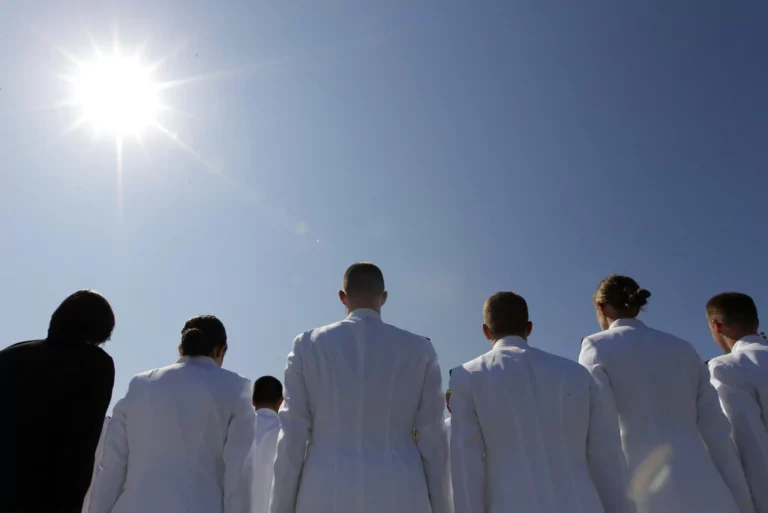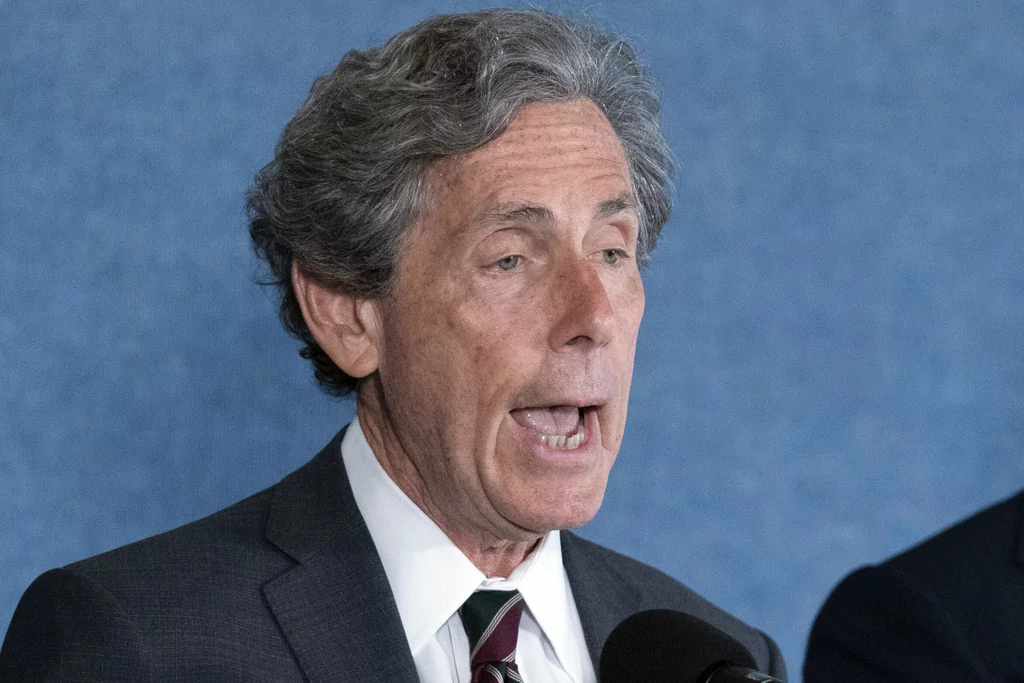
The group that successfully challenged affirmative action in college admissions at the Supreme Court last year is now targeting the United States Naval Academy in a new legal battle set to commence in a Baltimore, Maryland, trial Monday.
Students for Fair Admissions, the organization that led the landmark Supreme Court case banning race-conscious admissions at universities in 2023, is seeking to overturn an exemption allowing military academies to continue using affirmative action policies in their admissions processes.

The trial stems from lawsuits filed last year by SFFA against both the Naval Academy in Annapolis and the United States Military Academy West Point. The group, founded by Edward Blum, aims to extend its 2023 Supreme Court victory to military institutions. That 6-3 ruling prohibited colleges from considering race in their admissions policies, which had been used to promote diversity on campuses for decades.

(AP Photo/Jose Luis Magana, File)
“Students for Fair Admissions looks forward to presenting our case to the district court,” Blum said in a statement to the Washington Examiner, declining to comment further due to SFFA’s policy not to discuss litigation before a trial commences.
The forthcoming trial is expected to draw national attention because military academies were excluded from the original Supreme Court ruling brought against policies used at Harvard University and the University of North Carolina at Chapel Hill.
Chief Justice John Roberts noted in his decision that these institutions may have “distinct interests” in upholding affirmative action policies for admissions.
In a footnote attached to the Harvard and UNC decision, the Supreme Court wrote that it could not procedurally weigh in on the use of affirmative action despite SFFA’s contention that the same rules should apply.
“No military academy is a party to these cases, however, and none of the courts below addressed the propriety of race-based admissions systems in that context. This opinion also does not address the issue, in light of the potentially distinct interests that military academies may present,” according to the footnote in the 2023 decision.
The trial comes as fallout from the 2023 decision has caused both Harvard and UNC to report declines in minority enrollment, particularly among black and Hispanic students. However, some schools, such as Yale and Princeton universities, showed little difference in enrollment levels of these demographics.
During the Harvard and UNC litigation at the high court, 35 former Pentagon officers submitted a brief in support of the colleges’ efforts to maintain affirmative action policies, arguing that taking race out of the admissions considerations at military academies would “impede our military’s ability to acquire essential entry level leadership attributes and training essential to cohesion.”
The Biden administration’s Department of Justice, which is squaring off against SFFA at the Baltimore trial, argues that diversity within the officer corps is essential for military readiness and cohesion. According to the DOJ, racial disparities persist between enlisted service members and officers, which could undermine trust and mission effectiveness.
U.S. District Judge Richard Bennett, who rejected a pretrial attempt to block the Naval Academy from using race in admissions, will preside over the trial. Bennett emphasized that military leadership requires different considerations than civilian educational institutions, writing, “People at Harvard and UNC are not necessarily leading people into combat.”
Blum’s group has also sued West Point in New York to block the school from considering race in applications.
CLICK HERE TO READ MORE FROM THE WASHINGTON EXAMINER
After initial setbacks in a lower court, SFFA petitioned the Supreme Court earlier this year to take up the challenge against West Point.
The Supreme Court on Feb. 2 rejected the effort to stop race considerations immediately at West Point, writing that the lower court proceedings were still “underdeveloped” and that its rejection at this stage should not be read as “expressing any view on the merits of the constitutional question.”






